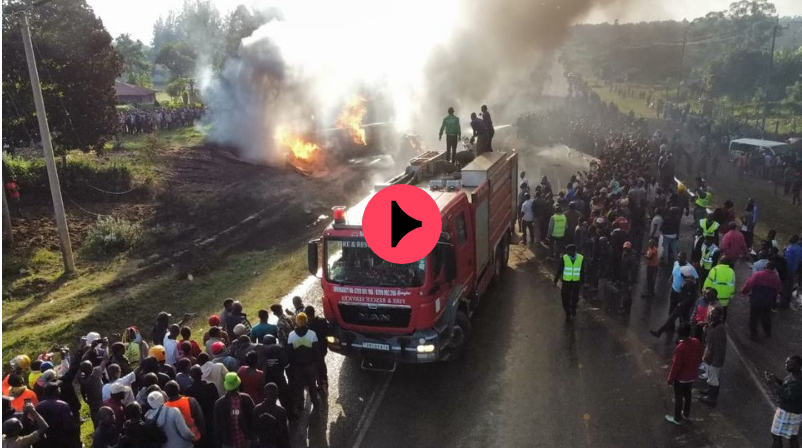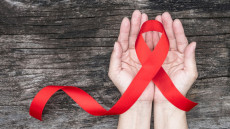- If you are near an accident involving a fuel tanker and you are not directly involved, move to a safe distance to reduce the risk of being caught in a potential explosion or fire.
On Wednesday, August 9, 2023, a fuel tanker was reported to have had an explosion at the Webuye –Malaba highway in a report by Nation’s reporter Jesse Chenge.
One person was reported dead in the accident when the fuel tanker caught fire.
In the recent past, tanker accidents have been reported killing a large number of people with families forced to identify their kin, such tragedies have left individuals broken in one way or another, whether directly or indirectly, and this calls for the public to be aware of safety measures in case such incidents occur.
In the accident, blame games were all over, with the firefighters being on the lead for not acting fast and their slow response to the fires. The county government was also blamed since it was the second incident in a week.
Incidents like these are unpredictable and can happen at any time, anywhere. Let’s check out these measures to keep us at bay whenever one is in the same scenario with no one to offer support.
Read More
Surviving a fuel tanker accident requires preparation, quick thinking, and following safety guidelines.
Fuel tanker accidents can be extremely dangerous due to the potential for fires, explosions, and hazardous chemical exposure.
Here are some safety measures to consider:
1. Stay Informed and Aware
Monitor road conditions and traffic updates through radio, GPS, or mobile apps.
Be cautious around large vehicles like fuel tankers, especially in adverse weather conditions or low visibility.
2. Maintain a Safe Distance
Maintaining a safe following distance from fuel tankers and other large vehicles when driving.
Avoid overtaking near curves, intersections, or areas with limited visibility.
3. Emergency Contacts
Keep emergency contact numbers saved in your phone and have them written down in your vehicle.
Know the local emergency response numbers for police, fire, and medical assistance.
4. Quick Exit Plan
Always be aware of emergency exits and escape routes while driving, especially on highways and busy roads.
Familiarize yourself with alternative routes in case the main road becomes blocked.
5. Avoid Crowded Areas
If you come across an accident involving a fuel tanker, try to keep a safe distance and avoid getting caught in traffic congestion around the incident.
6. Stay Calm
In the event of an accident, try to remain calm and composed.
Panic can lead to poor decision-making and increased risk.
7. Move Away from Danger
If you are near an accident involving a fuel tanker and not directly involved, move to a safe distance to reduce the risk of being caught in a potential explosion or fire.
8. Don’t Use Open Flames
Avoid smoking or using open flames near the accident scene, as fuel vapours could ignite.
9. Call for Help
If you witness or are involved in an accident, call emergency services immediately and provide accurate information about the incident's location and nature.
10. Protective Measures
If you must exit your vehicle, stay as far away from the accident scene as possible.
If you can access a reflective vest or brightly coloured clothing, wear it to make yourself more visible to other drivers.
11. Follow Authorities' Instructions
Follow the instructions of law enforcement officers and emergency personnel at the scene.
They are trained to manage such situations and will guide you to safety.
Remember, safety should always be your top priority.
It's important to exercise caution and make rational decisions to minimize risk during any emergency, including a fuel tanker accident.












